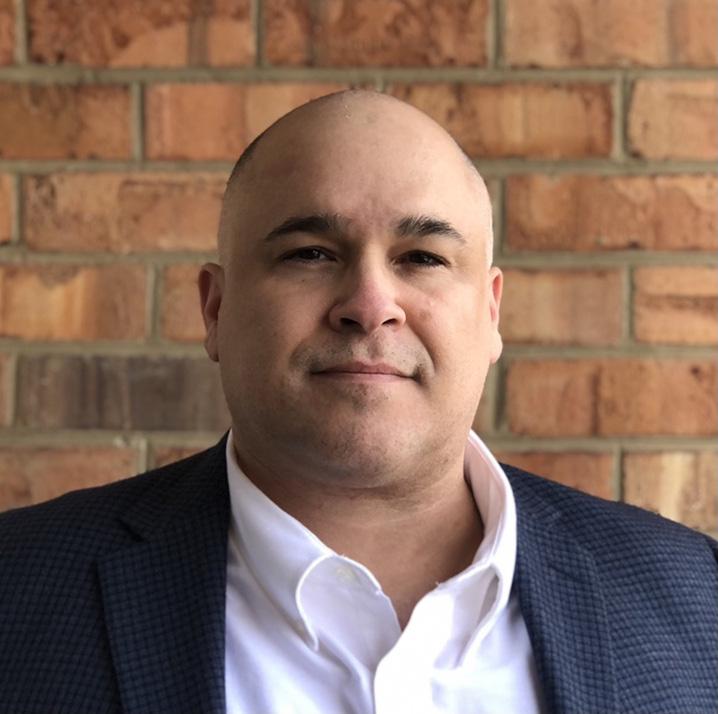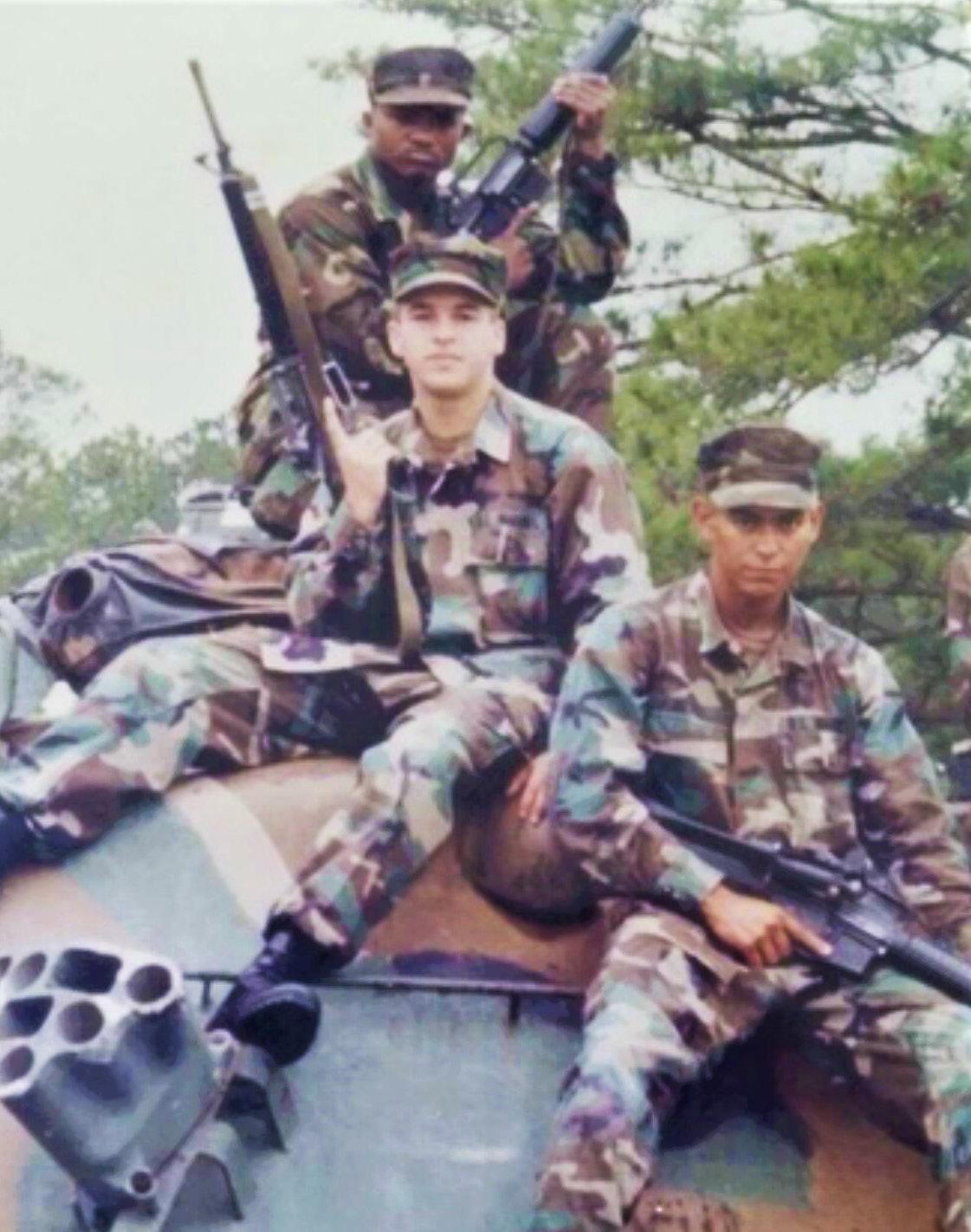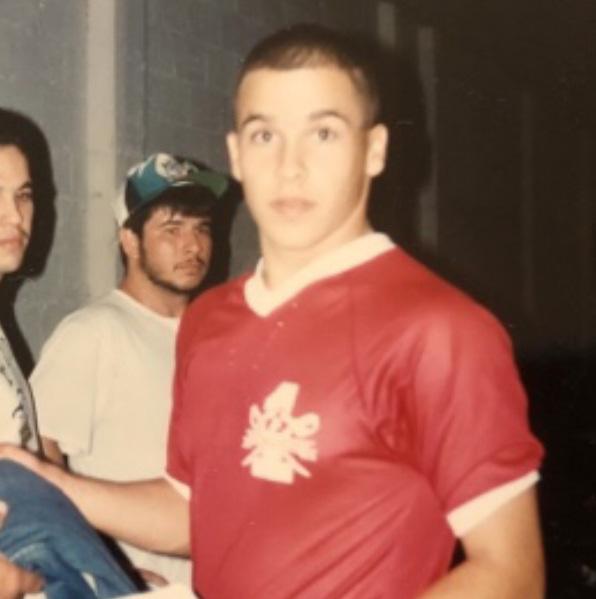
6 minute read
From the Corps to the Classroom
Assistant Professor Daniel Moraguez, ELPS
By Kelli Gemmer
Dr. Daniel Moraguez knew he was always college bound. What he didn’t know was the path he’d take to get there and where that path would lead him. Moraguez joined the United States Marine Corps after high school to help pay for college, travel the world, get experience, and gain maturity. “I knew that the Marine Corps was going to help me out in college, and I think it’s still the best four years of my life,” he said.

Although Moraguez knew his track involved college, he had never known anybody that had gone to college, so he was unsure how to get there. In the back of his mind, he recalled a childhood memory where he and his brother would watch the sitcom “Gomer Pyle, U.S.M.C.” and say, “Let’s go into the Marine Corps together.” So at 17 years old, he visited a Marine Corps recruiting office, and the rest is history.
While in the Marine Corps, Moraguez earned several awards and recognition including a meritorious promotion, accommodation medals, and service medals. As a firstgeneration Hispanic/Latinx American whose parents emigrated from Cuba, Moraguez said he felt the need to conduct himself in a way that pushed him to go above and beyond. “I always try to work hard and make sure that when people say my name, they’re saying it in a positive light.” He still applies this thinking to his work ethic today. Since his teenage years, Moraguez thought he wanted to be a lawyer. So after receiving his undergraduate degree, he worked in a law office, took the LSAT, and applied to law schools. When he was accepted into a law school he wanted to attend, Moraguez had an epiphany of sorts, thinking, “Is this really what I want to do? Is this where I’m going to find fulfillment?”

Military Combat Training (MCT) at Camp Geiger, NC
Growing up, Moraguez explained that his teachers were very important to him, and he related to their connections with students. “I always thought that I would be a good teacher.” So he decided to let fate decide where his next path would lead. “I applied for this alternate certification route in New York City. I’m like, ‘If I get it, it’s meant to be; I’ll become a teacher.’ I got it.”
Through this program, Moraguez was able to start teaching while earning his Master of Science in Education from the City College of New York. He taught in New York City public schools for six years before moving to Taiwan to teach at the Taipei American School. “This is where I eventually started thinking about leadership and developing leaders as a way to address the educational issues that I saw, and what I saw was inequity,” he said. He then decided that his next chapter would be to return to school to earn his Ph.D. in Administration & Supervision from the University of Virginia.
Returning To Florida
Born and raised in Florida, the opportunity to return to the state was very appealing to Moraguez. Last year, he joined the Florida State University College of Education as an assistant professor in the Educational Leadership & Policy Studies (ELPS) program. “FSU checks so many boxes,” said Moraguez. “The program here has great leadership and is very successful. They’re amazing at getting our students to pass the certification exams, and they put great leaders in schools. And in the next five years, we’re going to make it even better.”
Moraguez’s research focuses on leadership for equity and social justice in K-12 schools, principal preparation, leadership for multi-language learners, and instructional technologies. He sees technology as an equalizer for teacher and leader training, particularly when few programs have the resources or funding for extensive practicum programs. As a researcher at the University of Virginia, Moraguez studied the effects of interactive learning tools such as immersive, AI-enhanced digital simulations on leadership decision-making and self-efficacy.
At FSU, he is designing a study on simulated learning to enhance leadership preparedness, particularly around equity and social justice competencies. The simulated learning program would be in addition to existing pedagogies and provide supplemental formative assessment opportunities for learning and development as well as immediate student feedback. It includes two types of simulations: choose-your-own-adventure style digital simulations and mixed reality simulations.

Moraguez heading to Camp Johnson, NC for 3 months of military occupational specialty (MOS) training
“I think that simulations provide an opportunity to give aspiring leaders a lot of practice that is reality-based, and that gives them the ability to rehearse those decision making-points,” Moraguez said. It also allows aspiring leaders to learn from their mistakes and build on their skills without real-life implications, he adds.
Moraguez’s favorite part of the ELPS program is that it’s very student-centered and in alignment with what students must do to become certified and step into school buildings. For Moraguez, he brings several different voices to the program and the college: an immigrant voice, a firstgeneration voice, a Hispanic/Latino voice, and a military veteran voice. “I think all of that comes together and creates this unique perspective.”
Leading With Respect
Like his career path, Moraguez’s idea of a good leader has evolved. “For a long time, I used to think that a leader leads from the front, and I picked that up in the military,” he said. “If you’re going into battle, the leader is in the front, and everybody follows. You don’t leave anyone behind.”
While he thinks all of that applies to key leadership attributes, Moraguez looks at leadership a little differently today. He no longer feels that the leader necessarily has to lead from the front. “Sometimes you lead in a circle where everybody is equal, and you facilitate and give opportunities where there is space for people to take up that space and to shine. “
However, the most important characteristic of a good leader to Moraguez is someone who builds trust and respect. This trait is particularly true in educational settings. “When your students, parents, and teachers know that you care, they’re more willing to collaborate,” he said. Moraguez also sees a good leader as someone that genuinely cares, who knows everybody by name, and whom parents feel comfortable enough to approach. “Ultimately, it’s about looking out for student needs.”
Another leadership quality that Moraguez learned in the Marine Corps is flexibility. “The Marine Corps motto is semper fidelis, or always faithful, but they would often tell us semper gumby: always flexible. That’s something I still say.” One thing Moraguez won’t be flexible on? Arriving late anywhere. “In the military, if you’re not 15 minutes early, you’re late. I will always arrive early to an appointment. In class, I’ll be the first one there. In a meeting, I’ll be the first one there.” So if you’re meeting with Moraguez or attending his class, don’t be surprised when he’s the first one in the room. It’s a testament to his devotion to his work and the people he impacts each and every day in his profession.






